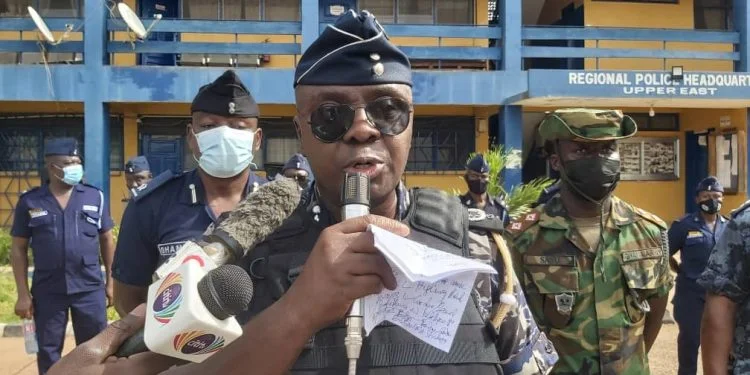On March 14, 2022, a deadly shooting in Bawku, a town in Ghana’s Upper East Region, claimed the life of a Fulani horse trader, Mohammed Bole, prompting swift police action. “It was at Konsinze, where some unknown assailants… rattled his body with gunshots, killing him instantly,” said Superintendent Simon Akabati, Bawku Divisional Commander, on TV3’s News 360. The Ghana Police Service arrested 18 suspects following the incident, with Akabati confirming they would face court on March 15, 2022, for prosecution. The motive remains unclear, but the attack is linked to ongoing tensions in the region, with calm reportedly restored post-arrests.
Context of Regional Instability
Bawku has been a hotspot for violence due to a longstanding chieftaincy dispute between the Kusasi and Mamprusi ethnic groups, dating back to 1957. The conflict, centered on competing claims to traditional leadership, has fueled sporadic violence, with over 260 deaths since 2021, per a 2024 report. “The latest violence began at 12:00pm and ended around 3:00pm,” a resident told JoyNews, noting the rapid escalation. The March 14 killing followed a pattern of targeted attacks, with the victim ambushed while traveling from Widana to Bawku, highlighting the region’s insecurity.
Security Measures and Restrictions
The Upper East Regional Police Command has imposed strict measures to curb unrest, including an 8:00pm-to-5:00am curfew, a ban on motorbike riding, and a temporary prohibition on wearing smocks, lifted briefly for a traditional festival. “Tension in the Upper East Region town has led to multiple bans on residents,” authorities noted, aiming to prevent further violence. These restrictions reflect efforts to control a volatile situation exacerbated by arms trafficking and ethnic divisions, with security forces conducting sweeps to maintain order.
Broader Implications of the Conflict
The Bawku conflict, rooted in chieftaincy disputes, has broader implications, including potential jihadist infiltration from neighboring Burkina Faso, per a 2024 ACCORD report. “Jihadist cells and hideouts have been confirmed” in nearby border areas, raising fears of extremists exploiting local instability. The violence has displaced thousands, with 20 deaths reported in October 2024 alone, per the Ghanaian Times. The arrests follow a pattern of police action, but “the suspects haven’t been officially charged because the police are still gathering evidence,” per ASP David Fianko-Okyere, indicating ongoing investigations.
Outlook for Stability
As of August 2025, Bawku remains tense, with curfews extended and sporadic attacks continuing, including a July 2025 school shooting killing three students. “Residents are amplifying their calls for the security to up their game,” the Ghanaian Times reported, reflecting public frustration. The arrests signal a commitment to restoring order, but the region’s deep-rooted ethnic and chieftaincy issues demand broader solutions, including dialogue and economic development. Without addressing these underlying causes, Bawku risks further violence, threatening stability in Ghana’s Upper East Region.






